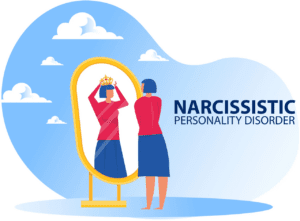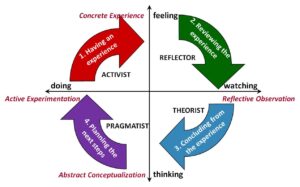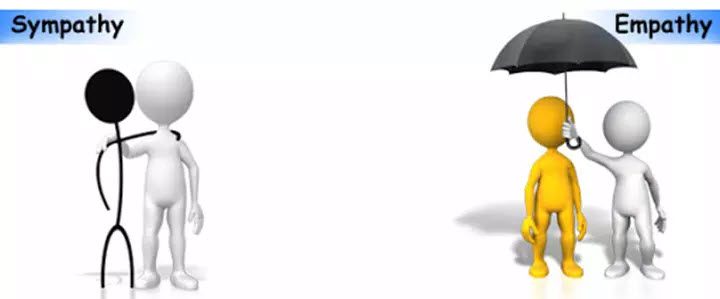
What is Empathy?
In Social Psychology, Empathy is the visceral emotional experience of another person’s thoughts and feelings from their point of view. It is the ability to step into another person’s shoes to understand their emotions and perspectives. Empathy facilitates pro-social and compassionate behaviors from within rather than being forced.
Empathy stands in contrast to Sympathy, which is the ability to cognitively understand a person’s point of view or experience without the emotional overlay.
Empathy should also be distinguished from compassion, even though the terms are often interchangeable. Compassion is an empathic understanding of a person’s feelings, plus a desire to act on that person’s behalf.
People experience Empathy differently; under certain conditions, it is blunted or absent altogether. Psychopaths, for instance, can correctly infer the thoughts and feelings of others, but a true psychopath does not feel Empathy.
On the other hand, too much Empathy, sometimes known as Empathy Fatigue or Compassion Fatigue, can be detrimental to one’s well-being. It can interfere with rational decision-making, causing people to lead with their hearts rather than their heads. You lose the broader perspective or ignore the potential long-term consequences of overly empathic behavior.
Empathy is a practical, emotional experience of another person’s feelings. This raises the question, is Empathy a Skill or an Emotion?
Many researchers say Empathy is a skill, while others have yet to conclude whether it is a skill or an emotion. Regardless, you can develop more Empathy, so it is a natural skill that some people have while others work on it.
Benefits of Empathy
Empathy is an Interpersonal Skill that some people naturally possess. It has several benefits.
Some of these include:
- Empathy allows people to build social connections with others.
- People can respond appropriately in social situations by understanding what people are thinking and feeling.
- Empathizing with others helps you learn to regulate your emotions.
- Emotional regulation is essential because it allows you to manage your emotions, even during times of great stress, without becoming overwhelmed.
- Empathy promotes helping behaviors.
- You are more likely to engage in helpful behaviors when you feel compassion for others, and others are also more likely to help you when they experience Empathy.
Types of Empathy
There are several types of Empathy due to the different patterns and reactions toward the event.
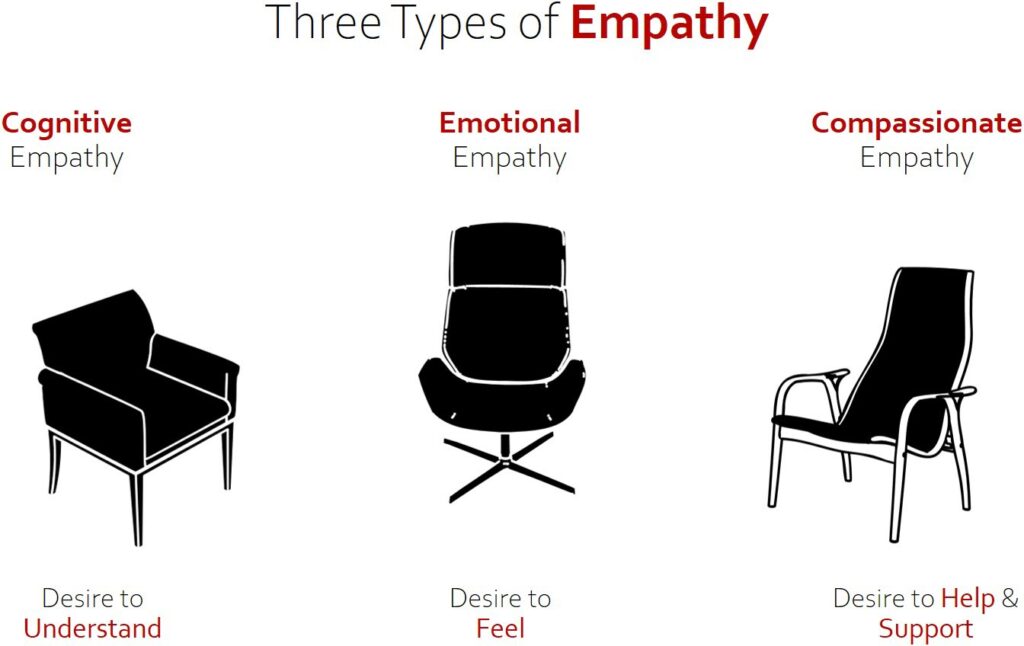
Affective – Emotional Empathy
Emotional Empathy involves understanding another person’s emotions and responding appropriately. Such emotional understanding may lead to someone feeling concerned for another person’s well-being, or it may lead to feelings of personal distress.
Emotional Empathy, also known as ‘personal distress’ or ’emotional contagion,’ is when you feel the other person’s emotions alongside them as if you had ‘caught’ the feelings. This is closer to the usual understanding of the word ’empathy’ but more emotional.
Emotional Empathy can be good because it allows us to readily understand and feel other people’s emotions. It means that we can respond to others when they are distressed. However, it is possible to become overwhelmed by those emotions and, therefore, unable to respond. This is known as empathy overload.
Those who become overwhelmed need to work on self-regulation, particularly self-control, to improve their Emotional Intelligence. Good self-control helps doctors and nurses avoid possible burnout from empathizing too much.
There is a danger, however, that they can become ‘hardened’ and not respond appropriately.
Cognitive Empathy
Cognitive Empathy, also known as ‘Perspective-taking,’ is not what most people consider Empathy. It is putting yourself into someone else’s place and seeing their perspective. It involves understanding another person’s mental state and thoughts in response to the situation.
This relates to what psychologists call the theory of mind, or thinking about what other people think. It is a valuable skill, particularly in negotiations with managers. It enables you to put yourself in someone else’s shoes without necessarily engaging with their emotions.
However, it does not really fit with the definition of Empathy as “feeling with,” as it is a much more rational and logical process. Effectively, cognitive Empathy is “empathy by thought” rather than by feeling.
It is possible to show cognitive Empathy without feeling Sympathy for it. However, it is fair to say that most of us would understand this fellow’s feelings as a crucial part of Empathy.
Daniel Goleman, the author of Emotional Intelligence, notes in his blog that torturers need good cognitive Empathy to work out how best to hurt someone, but without Sympathy towards them.
Compassionate Empathy
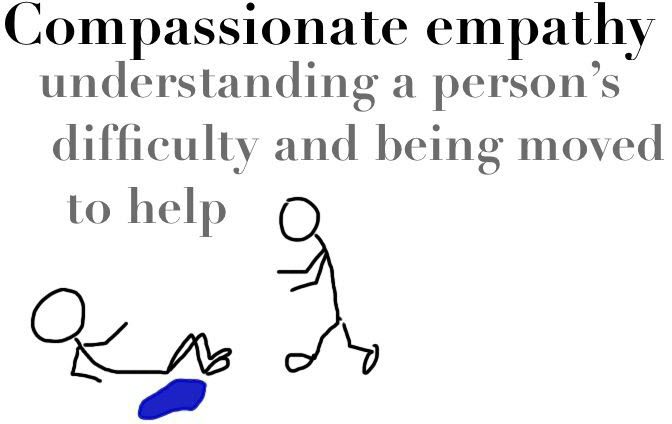
Compassionate Empathy is what we usually understand by compassion: feeling someone’s pain and taking action to help. The name Compassionate Empathy is consistent with what we typically understand by compassion.
Like Sympathy, compassion is about concern for someone, but with an additional move towards action to mitigate the problem. Compassionate Empathy is the type of Empathy that is usually most appropriate.
Generally, people who want or need your Empathy don’t just need you to understand (cognitive Empathy). They certainly don’t require you to feel their pain or, worse, to burst into tears alongside them (the emotional heart).
Somatic Empathy
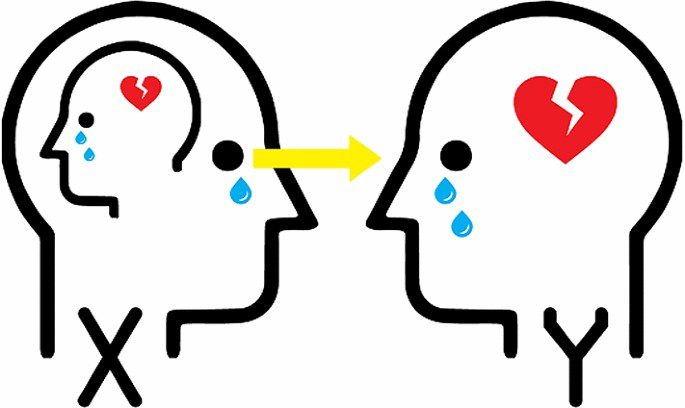
People sometimes physically experience what another person is feeling. Somatic Empathy involves a physical reaction to what someone else is experiencing. For example, when you see someone else feeling embarrassed, you might blush or have an upset stomach. If you see someone hurt, you, too, might feel physical pain.
You can see an echo of somatic Empathy, for example, if someone is hit in the stomach with a ball during a sports game and one or two spectators may double over as if they, too, had been shot.
Anecdotally, identical twins sometimes report knowing when the other has been hurt, which might be an example of somatic Empathy.
Is Empathy Genetic?
The OXTR Gene and Empathy
The OXTR gene (Oxytocin Receptor gene) is associated with Empathy and love. Oxytocin is a hormone that promotes love and social bonding in humans.
The OXTR gene regulates the oxytocin receptor. Therefore, changes in this gene can increase or decrease a person’s ability to feel empathetic.
Genetic Changes in OXTR That Influence Empathetic Potential
A particular change in this OXTR gene, rs53576, affects how people trust and empathize with others around them.
The A allele of this single nucleotide polymorphism or SNP is associated with less trust and Empathy. In comparison, the G allele is associated with more confidence and better feelings of Empathy.
Another SNP rs2254298 of the OXTR gene is also associated with changes in empathy levels.
According to a study, individuals with CT genetic type showed more cognitive Empathy than those with TT type.
The BDNF Gene and Empathy
The BDNF gene (Brain-derived neurotrophic factor gene) helps produce the BDNF protein.
This protein is associated with long-term memory and the ability to learn. For a very long time, the role of the BDNF gene was not associated with Empathy. However, recent studies have found a direct link between changes in this gene and the ability to empathize.
Rs6265 is a single-nucleotide polymorphism (SNP) in the BDNF gene. The A allele of this SNP is associated with lowered levels of Empathy compared to the G allele.
What Influences Your Empathy?
Research has shown that some of us are more empathetic than others and that, on average, women are slightly more compassionate than men.
Many genes, like BDNF and OXTR, are associated with memory and social bonding and influence an individual’s Empathy. However, these genetic differences account for only a tenth of empathy variation.
Many external environmental factors and other personality traits significantly influence an individual’s empathetic potential.
People don’t experience Empathy in every situation. Some people may be more empathetic in general, naturally.
In comparison, depending on the situation, some people can be more or less compassionate toward others.
Some of the different factors that play a role in this tendency include:
- How you perceive the other person.
- How you perceive their behavior.
- How you perceive their predicament.
- Your past experiences and expectations.
At the most basic level, there appear to be two main factors that contribute to the ability to experience Empathy: genetics and socialization. Essentially, it boils down to the age-old relative contributions of nature and nurture.
Parents pass down genes that contribute to your personality, including the propensity toward Sympathy, Empathy, and compassion.
On the other hand, people are also socialized by their parents, peers, communities, and society. How people treat others and how they feel about others often reflects the beliefs and values instilled at a young age.
Why do People Lack Empathy?
Empathy has benefits in many fields, from personal development to professional growth. Here are a few reasons why people sometimes lack Empathy.
They fall victim to cognitive biases.
Sometimes, the way people perceive the world is influenced by several cognitive biases. For example, people often attribute other people’s failures to internal characteristics while blaming their shortcomings on external factors.
These biases can make it difficult to see all the factors contributing to a situation and make it less likely that people will be able to see a problem from another perspective.
They may dehumanize the person.
Many also fall victim to thinking that people who are different from them don’t feel and behave the same as they do. This is particularly common in cases when other people are physically distant.
When they watch reports of a disaster or conflict in a foreign land, people might be less likely to feel Empathy if they think those suffering fundamentally differ from theirs.
They may blame the person.
Sometimes, people blame the victim for their circumstances when another person has suffered a terrible experience. This is why victims of crimes are often asked what they might have done differently to prevent the crime from happening again. But, again, this tendency stems from the need to believe that the world is fair and just.
People want to think that people get what they deserve and deserve what they get — it fools them into thinking that such terrible things could never happen to them.
Psychopaths
Psychopathy originated from Greek history, where psyche refers to the mind, and pathos refers to suffering. Even though the meaning of this psychological term is shifted to various areas, in the end, it is associated with mental sickness.
Mind sickness indicates its nature itself. And it can be harmful to the person and people around them. Mind sickness damages the ability to feel, think, sense proportion, imagine, understand reality, and control emotions.
The harm is that in this condition, your mind stops working or works against you, affecting your power to feel, think, and understand completely.
Mind sickness can turn into many dangerous forms. It breaks your ability to understand reality and can result in,
- Paranoia: it is a constant baseless sense of fear and anxiety.
- Schizophrenia: it is a crushed mental condition.
- Hallucinations: hallucinations are when someone sees or experiences non-existent things.
- Delusions: imagining things that are unsupported by your experiences to be true.
Any damage to your brain’s parts can lead to tremendous problems. But, its seriousness can be imagined; what if a broken or damaged portion of your brain becomes your ability to react or control yourself?
In such a case, you have lost Empathy completely. And the people are just shadowy, moving figures for you, and their behavior is the opposite of yours. For example, you are watching a musical show without a sound. Imagine when you only watch moving pictures, without music and words.
Instead of having a social impact, a lack of Empathy also affects you personally. Your feelings and emotions are dead. And nothing can affect you at all. So, for you, people are different, with no attachment, senses, or anything. You are like a blank slate; you want to remain empty forever.
Sociopaths
Sociopathy comes from Latin, whereas Socius means supporter or companion, and pathos means sufferer in Greek.
Sociopaths have difficulty associating with the people around them because their ability to deal with others is damaged.
Sociopathy can also be called Antisocial Personality Disorder, where they disregard the suffering person. Symptoms of Antisocial Personality Disorder are visible in a person’s childhood but cannot be diagnosed until they turn to adulthood.
Antisocial Personality Disorder can be treated but can’t be cured. The treatment will require the support of family members and therapy. Sociopaths can’t hide their symptoms, such as lying, breaking laws, lack of regret, etc.
Balance your Empathy
Cognitive Empathy can often be considered under-emotional. This is because it involves terrible feelings and perhaps too much logical analysis. As a result, it may be perceived as an unsympathetic response by those in distress.
Emotional Empathy, by contrast, is over-emotional. Too much emotion or feeling can be unhelpful. Feeling strong emotions, especially distress, takes us back to childhood. More or less, by definition, that makes us less able to cope and certainly less able to think and apply reason to the situation.
It is tough to help anyone else if your own emotions overcome you. We can find the right balance between logic and emotion in exercising compassionate Empathy.
We can feel another person’s pain as if it were happening to us and express the appropriate amount of Sympathy. At the same time, we can remain in control of our emotions and apply reason to the situation. This means we can make better decisions and provide appropriate support to them when and where necessary.


